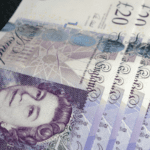August can be a perilous month for financial markets. Broadly speaking, history has pointed out that it is a time of high vigilance due to the crises that have taken place then. From crashing stock markets to currency devaluation, late summer has been marked by the unfolding of numerous economic problems with repercussions on world markets.

August is one of the most dangerous months in the economic calendar, often raising financial woes. With policymakers going on holiday, it would seem like a quiet month, but history shows that big crises tend to blow up in this period. This pattern perpetuates the idea: be more cautious in the financial world in the month of August.
One of the reasons August is so dangerous is because of the market’s nature, which leads to increased volatility. Volatility refers to the change in prices of stocks and other financial instruments over time or within any other risk parameter. When volatility is high, the market may swing radically up or down, which may mean possible financial instability.
A classic illustration was recently witnessed when the stock market experienced a mini crash. While this was not on enormous scale, it still left many sweating. This is the kind of thing that can be expected during August, a month when the unexpected happens.
August Crises – Historical
Cases in which August played an important role in financial crises can be retraced all across the horizon of history. In August 1990, for example, Iraq invaded Kuwait, and oil prices surged apparently out of nowhere. It had a knock-on effect on the rest of the world, pushing the rate of inflation up and slowing economies. While Kuwait would eventually be liberated, those high oil prices persisted, having a lasting impact and contributing to the recession most developed nations experienced.
Another major event took place in August 1998, when the economy of Russia nose-dived. The government—president being Boris Yeltsin—had borrowed much money from other countries for the rebuilding process of its economy, as it collapsed with the fall of the Soviet Union. By August, Russia could not pace up with the debt repayment and was forced to devalue its currency, the rouble. This devaluation led to a big financial crisis, not only in Russia but all over the world. One big American hedge fund, Long Term Capital Management, lost an immense amount and had to be saved by a couple of big banks.

In August 2007, a small crisis foreboded a much bigger one. The French bank BNP Paribas decided to close three of its hedge funds because they were losing money by investing in US mortgages. At the time, it didn’t seem like that big of a deal, but it turned out to be the canary in the global financial system coal mine. So many banks had invested a great deal in the US housing market and, when the housing bubble began to pop, these investments turned sour. This uncertainty over just how much money banks had lost, caused credit markets to freeze, which ushered in a full-blown financial crisis in 2008.
The UK and August’s Troubles
The United Kingdom does not seem to have been left behind in these financial tribulations during August. Throughout the last century, the UK has devalued its currency, the pound, four times. Three of these devaluations occurred in September, but the writing had already been on the wall that August. In 1992, for example, the UK government tried to prop up the pound against the German mark; it was a policy that couldn’t last. Currency traders—most famously George Soros—kicked against this; thus, Black Wednesday occurred in September 1992.
The historical pattern of August troubles means that when markets undergo turbulence during this month, it sets off alarm bells. It makes investors and policy makers alike nervous, bringing to mind the crises of the past.
The Pattern of Financial Crises
Financial analysts indicated that usually, August is the start of financial chaos. Henry Allen, a macro strategist at Deutsche Bank, said the VIX index is an indicator of the market volatility, which normally increases in the late summer months. An increase in the VIX index means that the markets become even more unpredictable and really small issues might get out of hand.

Holger Schmieding, chief economist at Berenberg Bank, told the same thing: sharp falls in equity markets are not unusual right before the end of summer. It has happened often enough that it is a known risk factor when financial planning.
In a nutshell, August has been building a reputation as a month of parlous finance. Whether because of historical events or the natural rhythm of the markets, that period is considered to be special attention-worthy. Crises are not observed in every August, but the frequency of past troubles argues that both investors and policy makers have to be on special guard during this time. Armed with the knowledge of risks, they would be better equipped to sail through these challenges that often visit in August.


